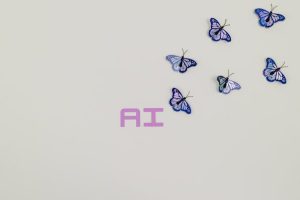AI’s Role in Shaping the Future of Mobile Apps

Although mobile apps have become deeply embedded in our daily lives, users are frequently frustrated by limited functionality and one-size-fits-all experiences.
The good news is that artificial intelligence has the potential to completely transform the future of mobile apps, both internally in development and externally in transformational new user experiences.
In this post, we’ll look at how artificial intelligence is improving mobile app development by automating coding tasks and generating prototypes. We’ll also show how artificial intelligence enables more intuitive user interfaces such as chatbots, hyper-personalized recommendations, and next-generation computer vision capabilities.
When you continue to read, you will find how artificial intelligence is shaping the future of mobile apps in terms of how they are built and how they engage users more intelligently than ever before.
How AI is Enhancing App Development
AI is revolutionizing the process of building mobile apps, allowing developers to work smarter and faster. Here are some of the key ways AI is augmenting mobile app development:
Automating Coding and Testing to Accelerate Development
Developing quality mobile apps involves a lot of repetitive coding work and exhaustive testing. AI techniques like machine learning can automate these rote tasks, freeing up developers to focus on higher-level strategic work.
For example, AI code completion tools can suggest entire code blocks based on context, speeding up coding time. AI can also automatically test apps to find bugs and vulnerabilities without human intervention.
Generating Code and Prototypes to Boost Productivity
AI is beginning to take over basic coding responsibilities from mobile developers. AI code generation tools can produce whole segments of code or even simple app prototypes when given a basic description of the desired functionality.
This allows developers to quickly mock up and validate app ideas before having to manually code everything from scratch. Apps can now be developed faster than ever before thanks to AI’s ability to shoulder some of the coding workload.
Enabling More Complex and Intelligent Apps to be Built
AI enables developers to build apps with functionality that would be extremely difficult, if not impossible, without the power of AI. For example, apps with computer vision for image recognition, natural language processing for chatbots, or recommendations powered by deep learning algorithms.
Developers can now incorporate AI components like these into their apps without needing to be AI experts themselves. The democratization of AI is key to creating the next generation of intelligent mobile experiences.
How AI is Transforming User Experiences
Beyond assisting with development, AI also allows apps to deliver smarter, more personalized experiences to users. Here are some of the ways AI is elevating mobile app usability and engagement:
More Intuitive and Conversational Interfaces like Chatbots
AI powers more natural language interfaces in apps. Users can now chat with an app similar to messaging a friend. Chatbots leverage natural language processing to understand requests and hold engaging conversations.
This provides an intuitive way for users to interact with apps to ask questions, get recommendations, or accomplish tasks through voice or text.
Personalization through Machine Learning Recommendations
AI in Mobile apps uses different algorithms to learn about individual users and deliver custom experiences. For example, shopping apps can recommend products based on your browsing history and purchases.
Streaming apps can suggest movies based on your past viewing behavior. And news apps can curate articles tailored specifically to your interests. The more you use an app, the smarter it gets at personalizing for you.
Advanced Computer Vision Features like Face/Image Recognition
Computer vision enabled by machine learning allows apps to “see” like humans. Apps can now recognize faces and objects in images or videos.
This powers functionality like automatically tagging photos or enabling virtual try-ons of makeup products. Computer vision opens the door for more interactive and visually-driven mobile experiences.
Use Cases Demonstrating AI’s Impact
Let’s look at some examples of real-world apps employing AI to enhance their products:
Retail – Personalized Recommendations, Chatbots for Customer Service
Retailers like Amazon use AI to study purchase data and generate relevant product recommendations for each individual user. Shoppers benefit from a personalized shopping experience. Retail apps also implement chatbots to assist with customer service inquiries on purchasing, shipping status, returns, and more.
Finance – Fraud Detection, Tailored Investment Options
Banks apply AI to detect fraudulent transactions in real time to protect users. Financial apps also leverage robo-advisors to provide customized investment portfolio recommendations tailored to a user’s financial situation and goals.
Entertainment – Auto-Generated and Interactive Content
Entertainment apps like TikTok apply AI to study users’ interests and preferences, auto-generating a never-ending stream of personalized content. Dating apps use computer vision-powered visual matching to detect profile photo compatibility. The possibilities for AI to enhance entertainment experiences are vast.
The Future Possibilities of AI in Mobile
These examples only scratch the surface of what’s possible when AI and mobile apps converge. As AI technology continues advancing at a rapid pace, so too will the capabilities it unlocks for app innovation.
AI Will Continue to Shape Emerging Trends
In coming years, we’ll see AI enable even smarter apps and user interactions through enhancements like predictive analytics, expanded computer vision uses, and multi-modal capabilities combining chat, voice, AR, and more.
Apps will act less like static programs and more like personalized AI companions. Users will increasingly expect mobile experiences to be intelligent and contextual. The ability to deliver this will be key for apps to win user mind share.
5G Will Enable New AI Capabilities
The rise of high-speed 5G networks will dramatically accelerate the pace of innovation in AI-powered apps. 5G’s increased bandwidth, reduced latency, and ability to connect exponentially more devices will enable transformative new AI use cases.
Apps can respond in real time using live data streams. We’ll see computing pushed to the “edge” — allowing AI processing on devices vs. relying on the cloud. The mobility ecosystem will rapidly co-evolve with AI thanks to 5G.
Imagining Future AI Applications in AR/VR, Wearables, and Edge Computing
Looking towards the horizon, AI will help realize emerging technologies like augmented and virtual reality. AI can enable fluid and contextually-aware AR experiences. In virtual worlds, AI NPCs can interact naturally with human users or train them through simulations.
As wearable devices like smart glasses become mainstream, on-device AI will deliver timely insights without needing a smartphone. And as edge computing takes off, localized AI algorithms will power real-time experiences out in the field or factory floor. The synergies between AI and other exponential technologies are boundless.
Conclusion
AI is truly redefining what’s possible in mobile, from how apps are built to how they engage users. AI allows developers to build smarter apps faster than ever before. And apps can now deliver intuitive, conversational, and personalized experiences powered by AI.
As this technology continues advancing, AI integration will become indispensable to creating market-leading mobile products. We’ve only scratched the surface of AI’s transformative impact.
The mobile apps of the future will tap even deeper into the possibilities of AI to revolutionize how people interact with computers and access services on the go.
If you also want to be part of this AI revolution, partnering with a mobile app development company that specializes in AI can help bring your vision to life. They can advise on how to best leverage AI to create next-generation mobile experiences that delight your users. The future of intelligent apps is bright, and with the right strategy, you can ensure your mobile products lead the way.






